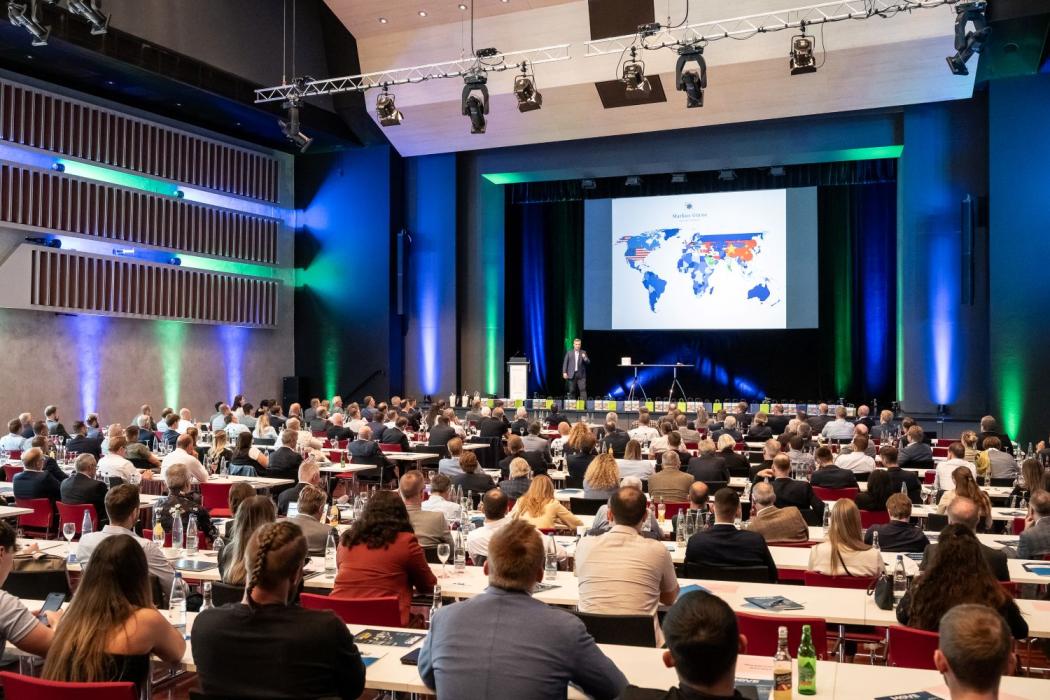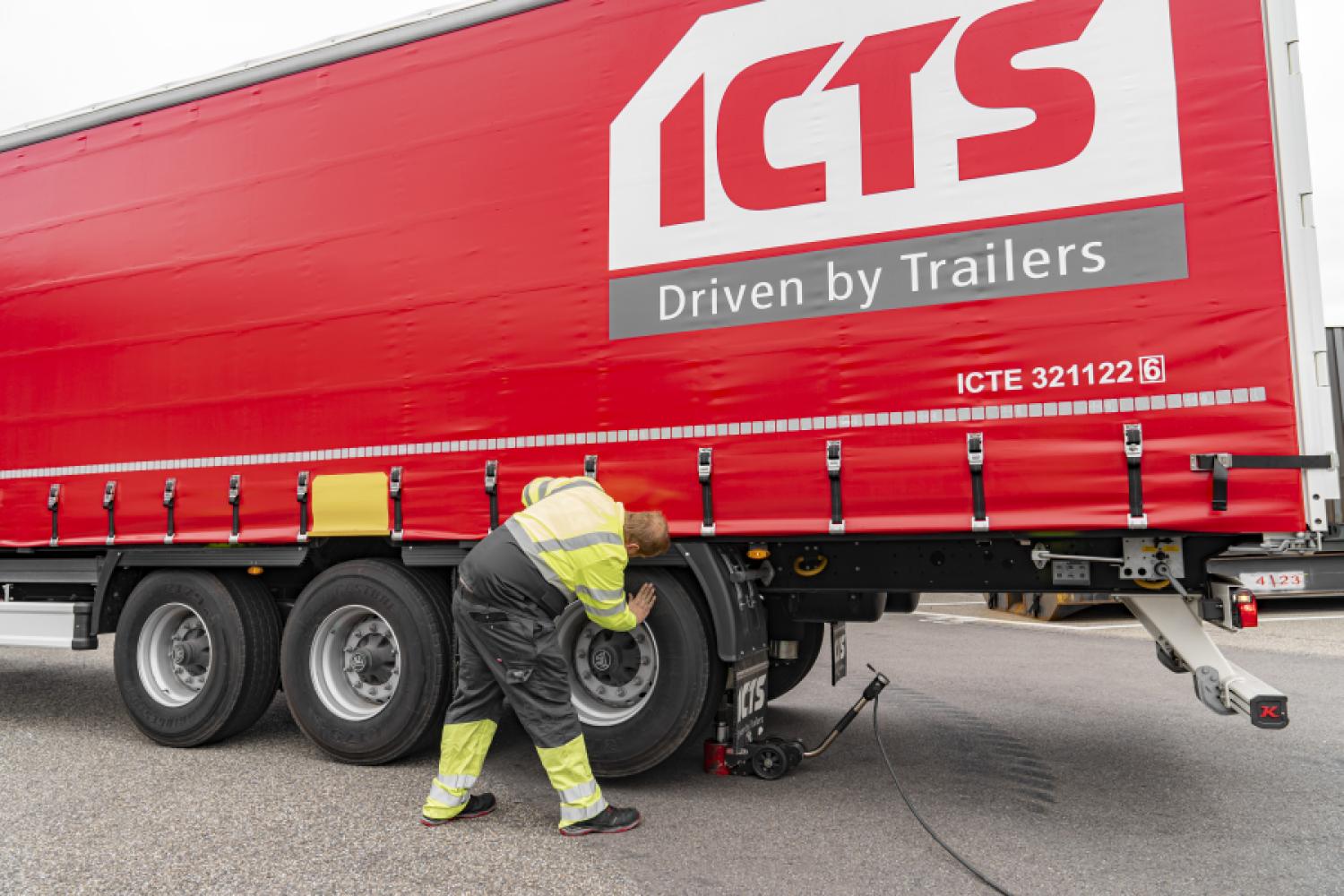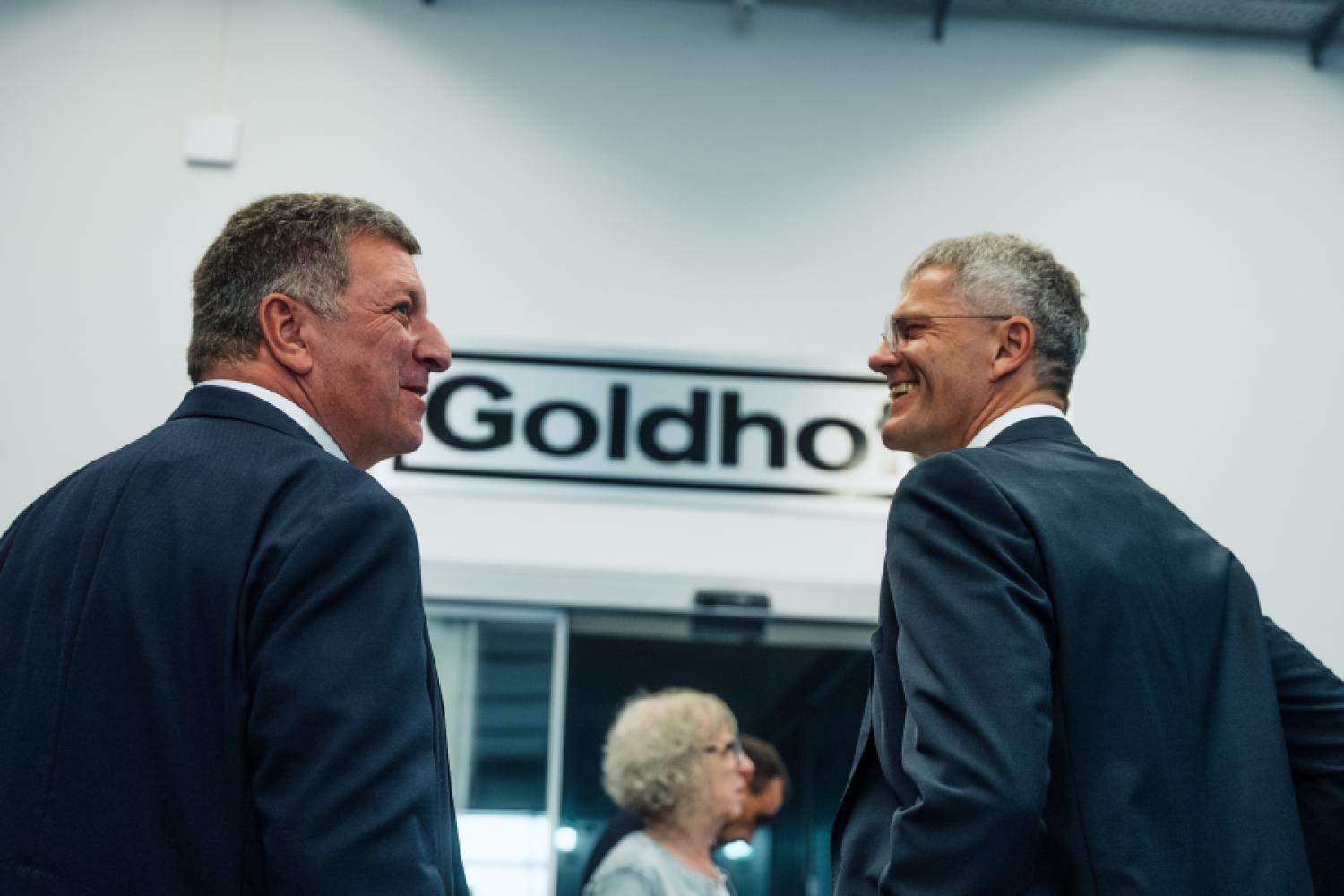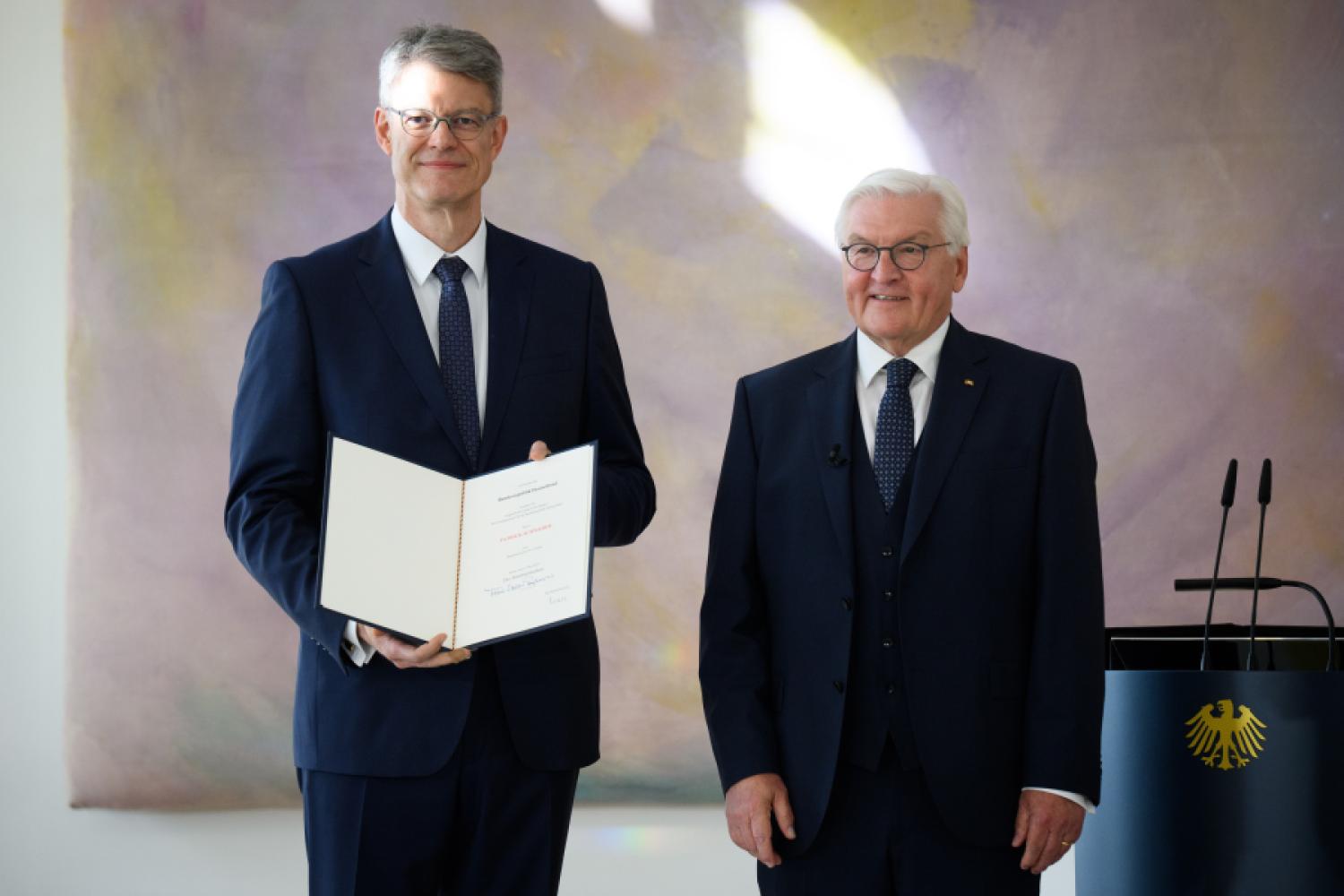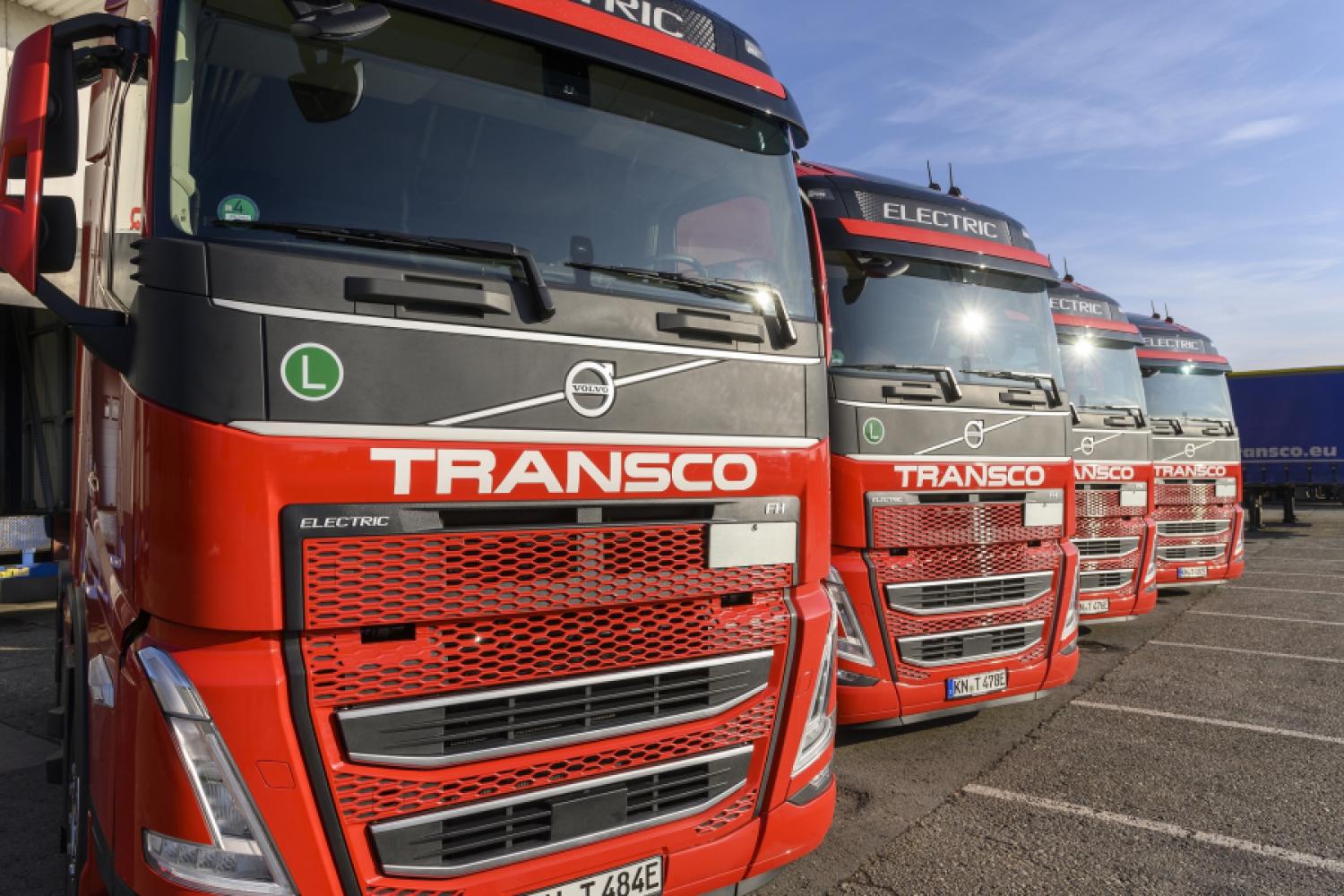The Association of Freight Forwarding and Logistics Baden-Württemberg (VSL) addressed key topics of economic and security policy at its general meeting on July 18, 2025, in Esslingen. In a time of increasing geopolitical tensions and economic uncertainty, the lobbying organization emphasized the importance of the logistics sector for Germany's defense capabilities and the resilience of global supply chains.
The event was well attended with around 250 participants, the association reports. In addition to industry-specific content, speeches by CDU parliamentary leader Manuel Hagel and ARD stock market journalist Markus Gürne were also on the program.
VSL President calls for logistics to contribute to security architecture
VSL President Dr. Micha Lege, who was unanimously confirmed for another three years in his position, called on the industry to be aware of its responsibility for freedom, democracy, and the market economy.
"If we are serious about freedom, democracy, and the market economy, then we must be serious about defense capabilities," said Lege.
In his view, logistics companies should actively support the Bundeswehr in this context. He also warned of the consequences of global political developments for logistics, supply chains, and trade.
Hagel criticizes locational disadvantages in international comparison
In his keynote, CDU parliamentary leader Manuel Hagel described three previously valid economic policy assumptions as outdated: cheap energy from Russia, security policy dependence on the USA, and inexpensive intermediate products from China.
The resulting challenges for Germany as a business location must now be actively addressed. Hagel called for new trade agreements and measures
to increase competitiveness. He used a comparison of international working hours as a warning signal: While in China about 2,200 working hours per person per year were worked, the figure in Germany is only 1,340 hours.
However, the comparison of working hours falls short, because it is not the amount of work done but its productivity, efficiency, and the economic framework conditions that are decisive for a location’s competitiveness. And in this respect, according to current OECD data, Germany has been among the countries with the highest labor productivity per hour for years, well above the EU average.
For the logistics industry, Hagel specified political initiatives: He ruled out an extension of tolls to state and municipal roads and advocated for technology openness in climate protection. He also emphasized that the federal government has decided to return to the financing cycle "road finances road."
Gürne emphasizes importance of special fund for defense
Markus Gürne, head of the ARD stock exchange editorial team, in his speech, called for a clear awareness of the impact of geopolitical changes on Germany's export-based business model. He considered the special fund set up by the federal government to strengthen defense capabilities justified during this phase.
It is necessary to build a modern infrastructure and a functioning security architecture. It is important to involve the population through transparent communication: "We can demand a lot from people in Germany, but they must understand it," Gürne said.
Economic shift urgently necessary from the Association's perspective
Dr. Micha
Lege called for a fundamental realignment of economic policy in his speech. Special funds should not be used for the financing of welfare state benefits but need to flow targetedly into future projects and growth. As specific demands, he named the acceleration of approval procedures, especially for infrastructure expansion, as well as the reduction of reporting obligations, such as through the CSRD regulations.
These obligate companies to report on their sustainability performance in the areas of environment, social, and corporate governance in a detailed and standardized manner. Many transport and logistics service providers will be affected by this in the future — or they are indirectly affected by their customers' requirements. The implementation causes significant bureaucratic effort, especially for smaller companies that have not had to create such reports until now. Often criticized are the lack of practical relevance of the requirements and the high documentation effort.
VSL also sees urgent need for action in tax and levy policy. Lege called for the reduction of taxes, energy costs, and social contributions to relieve companies financially. He particularly emphasized that the logistics industry, in the course of electrifying its fleets, will become one of the largest electricity consumers in the country. The planned reduction in the electricity tax must therefore also include logistics companies.
Criticism of EU regulations on drive change
Another focus of the general meeting was European legislation on the decarbonization of corporate fleets. VSL and DSLV view the EU's so-called "Clean Corporate Fleet" initiative critically, which proposes
binding quotas for zero-emission vehicles (ZEV) both in procurement and transport contracting. Frank Huster, chief executive of the DSLV, explained that even freight forwarders would be held responsible, even if they only act as clients.
"These considerations are going in the wrong direction," said Huster.
Lege also turned against legally mandated quotas. He emphasized that the transition to new drives would only succeed if the necessary infrastructure were available at the same time:
"We are committed to the drive change. But companies can only switch when it works. We need infrastructure, not quotas," said Lege.
Financing stop endangers infrastructure projects
Huster also criticized the current situation of public budgets. Due to the provisional budget management until the adoption of the federal budget 2025, a de facto budget freeze is in place, delaying investments. This has already led to Autobahn GmbH stopping awards for road and bridge renovation projects. The federal government must quickly respond to this special situation, said Huster.
Board elections: Continuity and personnel changes
In the internal part of the event, the members confirmed the previous VSL President Dr. Micha Lege (Wiedmann & Winz, Geislingen) for another three years in office. The board of the Employer Association of Freight Forwarding and Logistics (AVSL) was also newly elected. At the top, Elke Ester (UPS Germany) succeeds the long-standing chairman Rainer Krahn. Krahn was active on the board for 13 years and shaped the collective bargaining committee as a chief negotiator. For his commitment, he received the AVSL Gold
